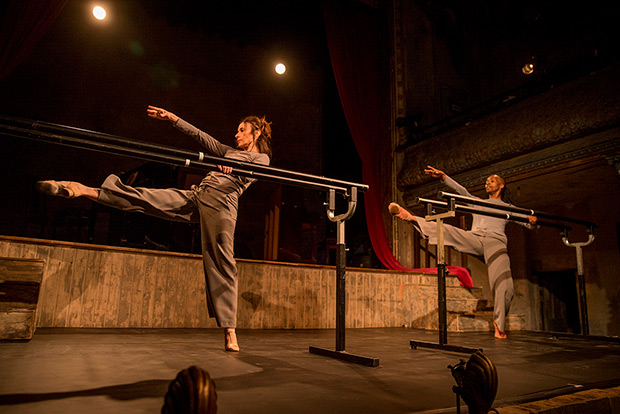
© David Scheinmann. (Click image for larger version)
Viviana Durante Company
THREE/8.38/SEVEN: THREE, 8.38, SEVEN
London, Wilton’s Music Hall
9 May 2019
www.viviana-durante.com
www.wiltons.org.uk
The show at Wilton’s Music Hall, produced and directed by former ballerina Viviana Durante, was originally billed as The Seven Deadly Sins by Kurt Weill and Bertolt Brecht, in choreography by Kenneth MacMillan. Twenty dancers and singers were promised: cabaret singer Meow Meow and Royal Ballet principal Laura Morera were photographed together in red wigs as the two Annas in the ballet chanté, created in 1933 as The Seven Deadly Sins of the Bourgeoisie.
In the event, the hour-long show was announced as ‘a Weimar-themed evening of song and dance to the music of Kurt Weill’. MacMillan’s ballet was cancelled and replaced by a sung-through version of The Seven Deadly Sins with just one Anna – soprano Wendy Dawn Thompson instead of Meow Meow. No explanation was given – not even the usual cliché about ‘artistic differences’ between the Durante Company and the MacMillan Estate.
Instead, Javier Frutos was commissioned at short notice to choreograph a pas de deux for Durante and Mbulelo Ndabeni to music by Weill. The title, 8.38, refers either to its duration, or the time de Frutos got the call to start creating. Viviana, who celebrated her 52nd birthday on 8 May, hadn’t performed as a dancer for some ten years (though she had been doing ballet class with the dancers contracted for the MacMillan Seven Deadly Sins). She had left the Royal Ballet in 2001 to perform with other companies, including K-Ballet in Japan (2003-2012). She set up her own company last year, presenting extracts from early MacMillan ballets in Steps Back in Time at the Barbican.
Mbulelo Ndabeni is a South African-born dancer, choreographer, teacher and artistic director of his own company N’da Dance. He was a member of Rambert between 2007-2014, and recently appeared in the Merce Cunningham Night of 100 Solos tribute evening at the Barbican. (He was the tall dancer with the topknot.)
For 8.38, he and Viviana were placed at portable ballet barres below the raised stage. Wearing grey tracksuits as though warming up or rehearsing, they each occupied their own barre, stretching and repeating combinations of moves in unison to recorded music: a snatch of Bach followed by Weill’s September Song, sung by Lotte Lenya, his wife, in 1957. Then, as the lyrics warn that time is too short to waste, Ndabeni joined vulnerable Durante at her barre, solicitous and tender, both dancers transforming practice routines into a pas de deux. Although their choreographed encounter was appealing, it had little to do with the Weimar cabaret theme of the rest of the programme.

© David Scheinmann. (Click image for larger version)
The evening had started with three songs from The Threepenny Opera, concluding with ‘Mack the Knife’ sung in full operatic style by Stephen Anthony Brown, Timothy Dawkins, Charles Johnston, Peter Van Hulle and Wendy Dawn Thompson. She reappeared in a different dress but the same red wig as Anna 1 in a two piano version of The Seven Deadly Sins, arranged by Jonathan Greer and played by Robert Clark and Robert Bridge, with Joe Richards on percussion. The other four singers took the roles of members of Anna’s family, with basso Dawkins as Mother.
The problem with operatic voices is that the enunciation often isn’t very clear. From where I was sitting in the balcony, the words recounting the seven sins (in the English translation by W.H.Auden and Chester Kallman) were all but inaudible, swamped by very loud pianos. I had no idea which sin had been reached, or how Wendy Dawn Thompson managed to address her non-existent sister, Anna 2. The doubling-up of the role is a device that works in the staged version as the two Annas swap places or stand side-by-side as twin images of the same person.
George Balanchine choreographed the original Seven Deadly Sins for Les Ballets 1933, with Lotte Lenya as the singing Anna and Tilly Losch as the dancing Anna. When Kenneth MacMillan choreographed his first version for Western Theatre Ballet in 1961, Lenya, invited to perform as Anna 1, walked out of the production for the Edinburgh Festival because the staging and designs were not what she expected. At short notice, young Cleo Laine came to the rescue; Anya Linden, now Lady Sainsbury, was the dancing Anna.
MacMillan had another go in 1973 for the Royal Ballet with jazz singer Georgia Brown as Anna 1 and Jennifer Penney as Anna 2. His third attempt was a commission from Granada Television in 1983: opera singer Marie Angel was Anna 1 and Alessandra Ferri Anna 2. To fill an hour-long slot for TV, MacMillan added a 14-minute prologue, in which Anna’s family, immigrants held on Ellis Island, watched two refugees face deportation. (The two dancers were Birgit Keil and Vladimir Klos from the Stuttgart Ballet.)
For the projected staging in Wilton’s Music Hall, preparations had been made to combine what could be recovered from all three of MacMillan’s versions. Though that plan has fallen through, the research has been done and his choreography recorded in Benesh notation. It remains to be seen whether MacMillan’s fascination with The Seven Deadly Sins might survive in yet another production, on film, TV or in the theatre.

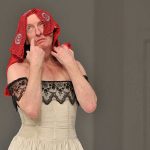
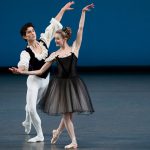
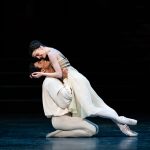
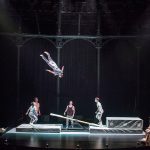

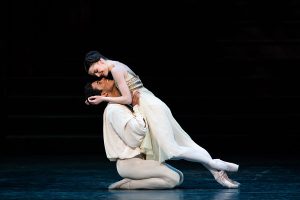
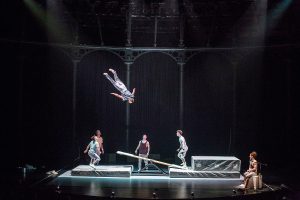
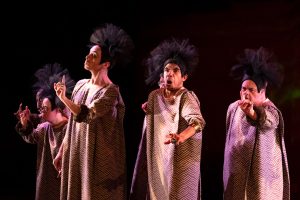
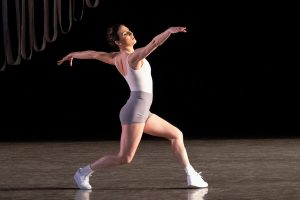
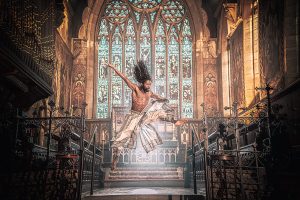


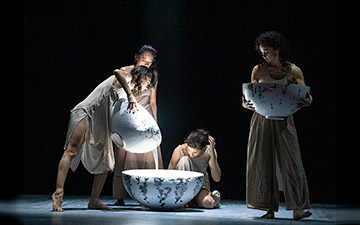

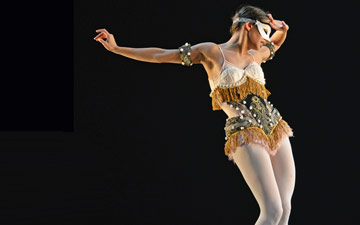
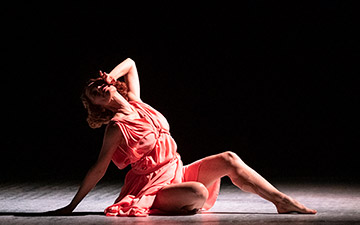
Hi, to confirm it’s Benesh.
Thanks.
Ta and Duh – poor editing by BM